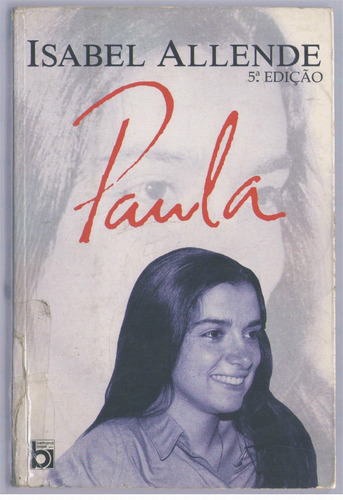

Immersed in an alien reality of nurses, neurologists, lab reports and monitors, she is like a "stranger in a strange land" (Cairns 47). The author writes much of the book from the hospital, an institution of confinement and pain in which she feels isolated and alone. One year after she got sick, Paula died peacefully in her mother's arms surrounded by her family. This time it was to Allende's San Francisco home where her daughter received hospice care from a team of nurse practitioners. When it was clear that Paula would never improve, the author moved her again.


After six months in Madrid, Isabel Allende moved her daughter to a clinic in California. "Ever since Paula became ill," she writes, "a dark curtain has separated me from the fantasy world in which I used to move so freely reality has become intractable" (Allende 260). As a fiction writer used to inventing and controlling the lives of her characters, Allende was humbled by the world of treatment and disease. The uncertainty of Paula's future triggered a sense of powerlessness and fear in the author.

Paula, who was twenty-eight years old and recently married, was treated in the intensive care unit of a public hospital in Madrid where she and her husband were living at the time. (3) Due to a misdiagnosis for a seizure, she received a massive dose of sedatives that pushed her into a coma from which she never emerged. This book, which can also be read as a biographical pathography, is a loving tribute to her late daughter, Paula Frias Allende, who in 1991 became gravely ill with porphyria, a rare, genetic disease that she inherited from her father. THE Chilean novelist, Isabel Allende (1942-), creates meaning from the experience of suffering through her daughter's illness and from bereavement in an autobiographical narrative entitled Paula (1994). It is strange indeed that illness has not taken its place with love and battle and jealousy among the prime themes of literature. You don't have anything If you don't have the stories. They are all we have, you see, all we have to fight off illness and death.


 0 kommentar(er)
0 kommentar(er)
